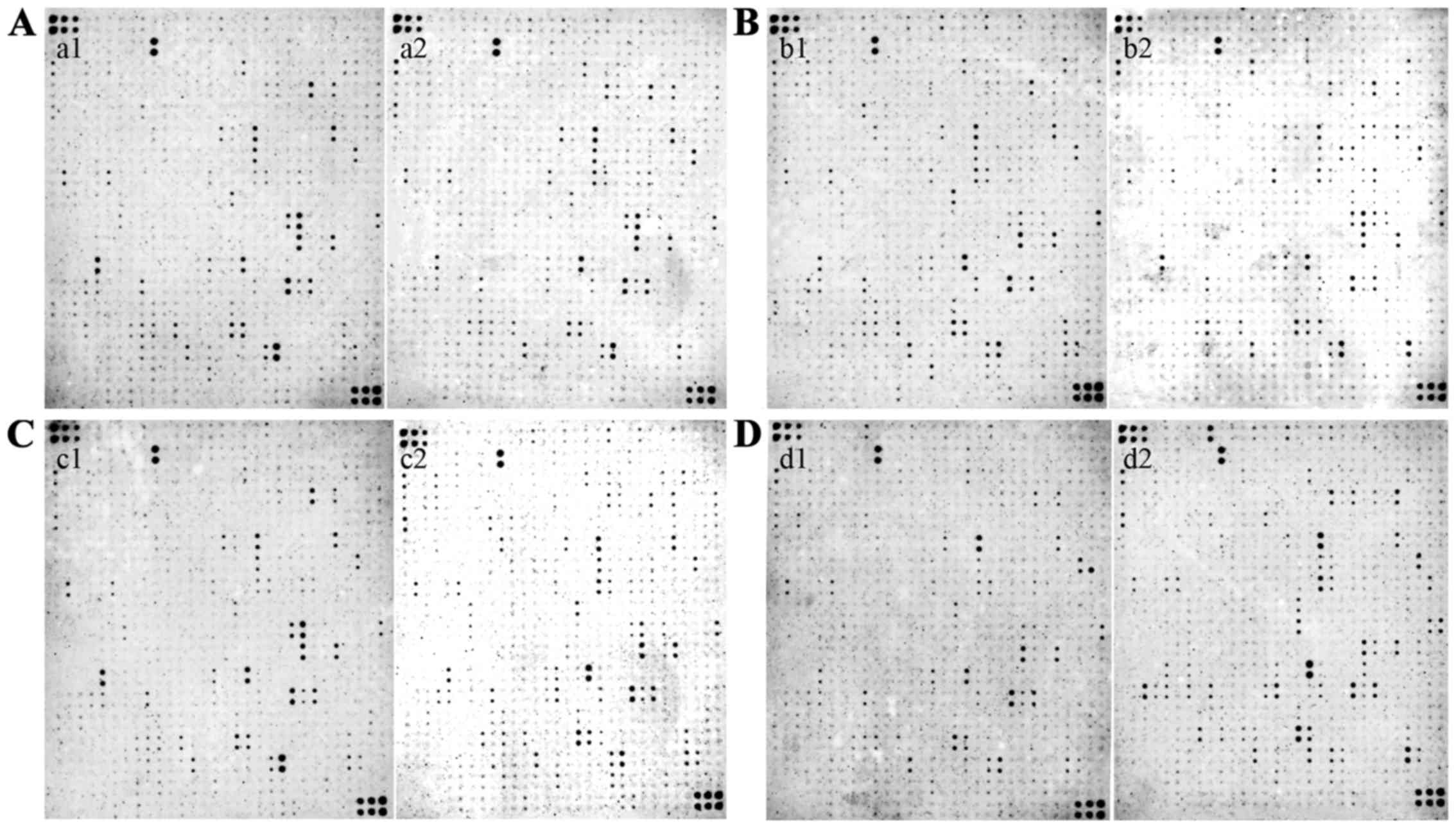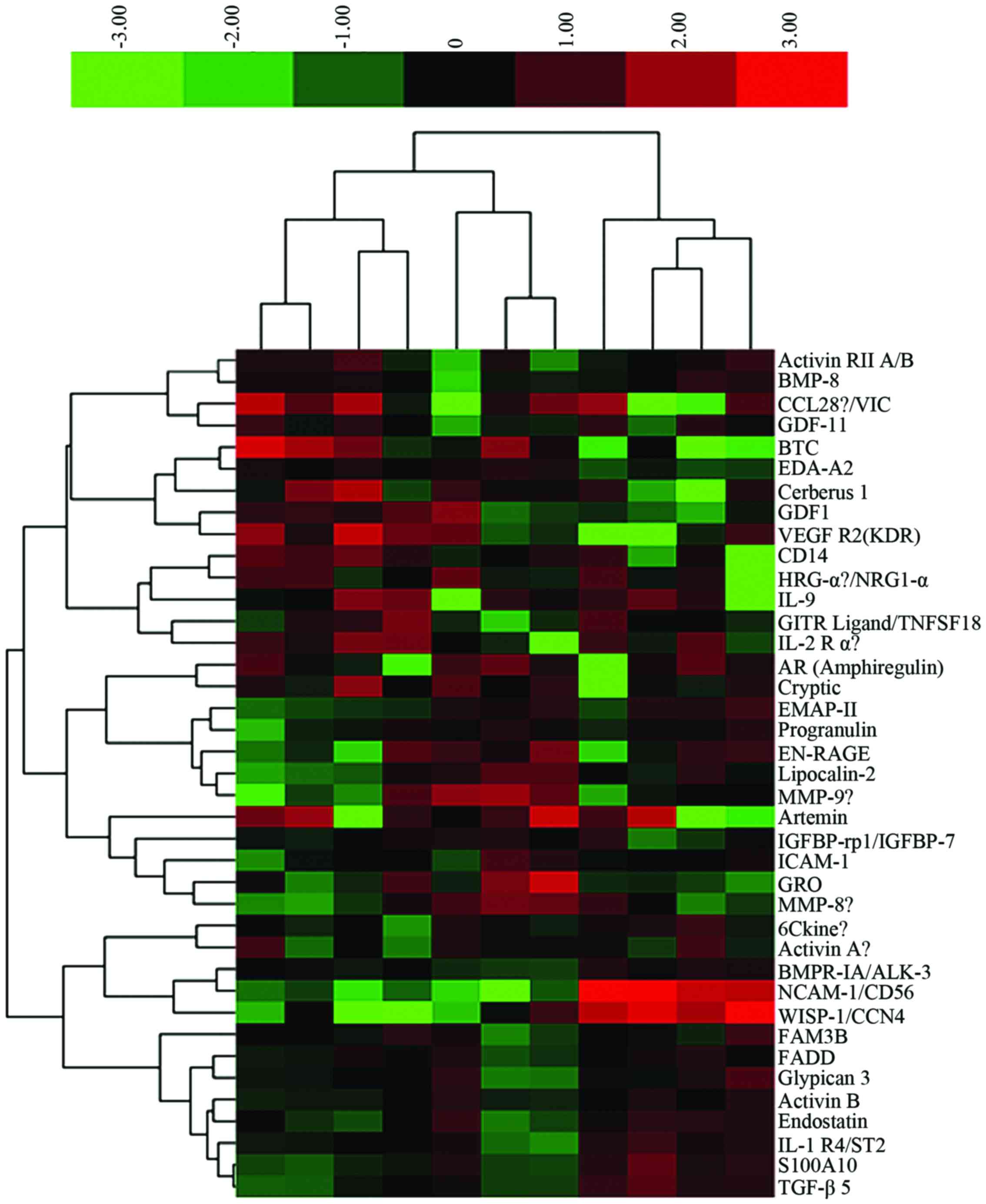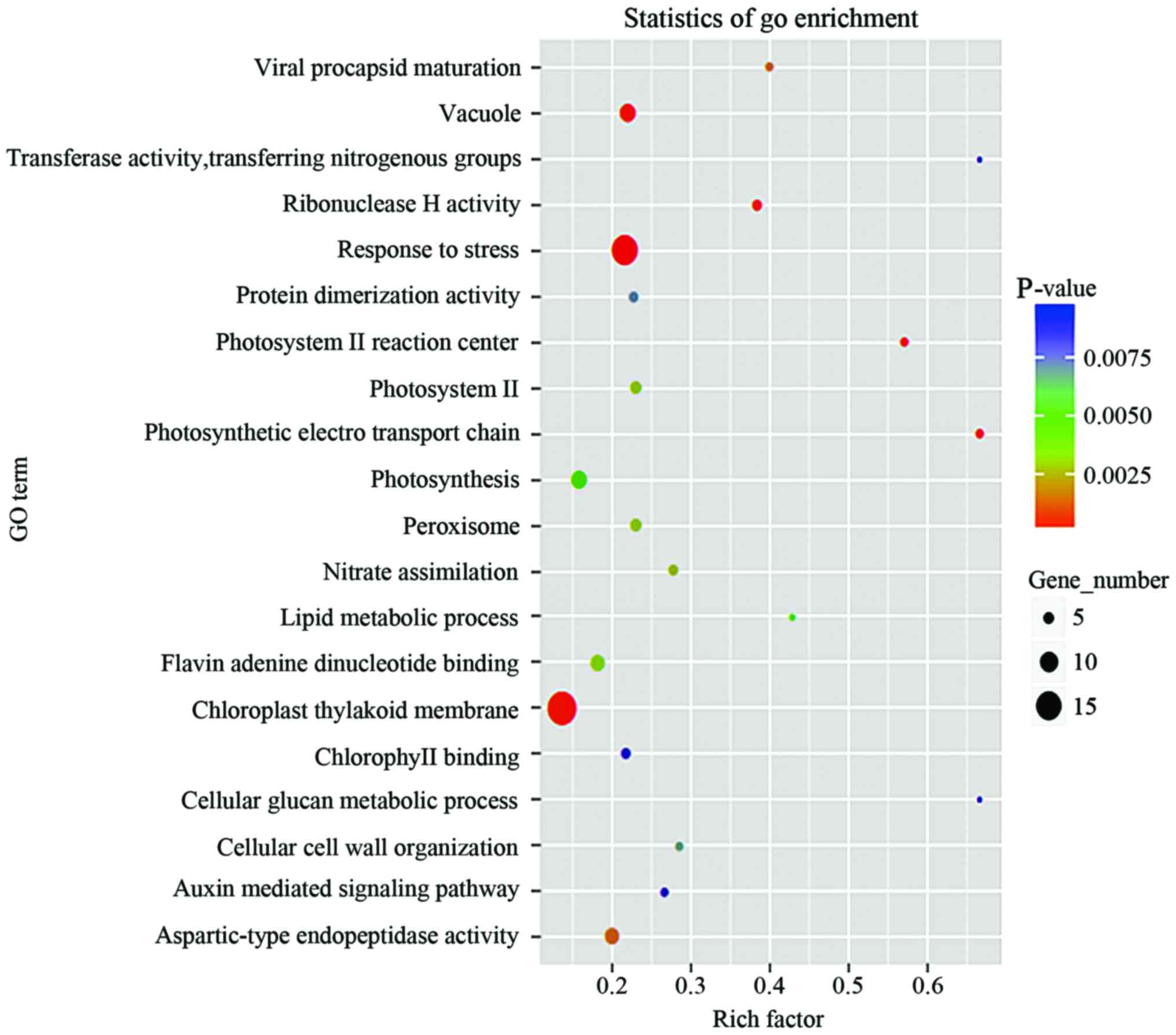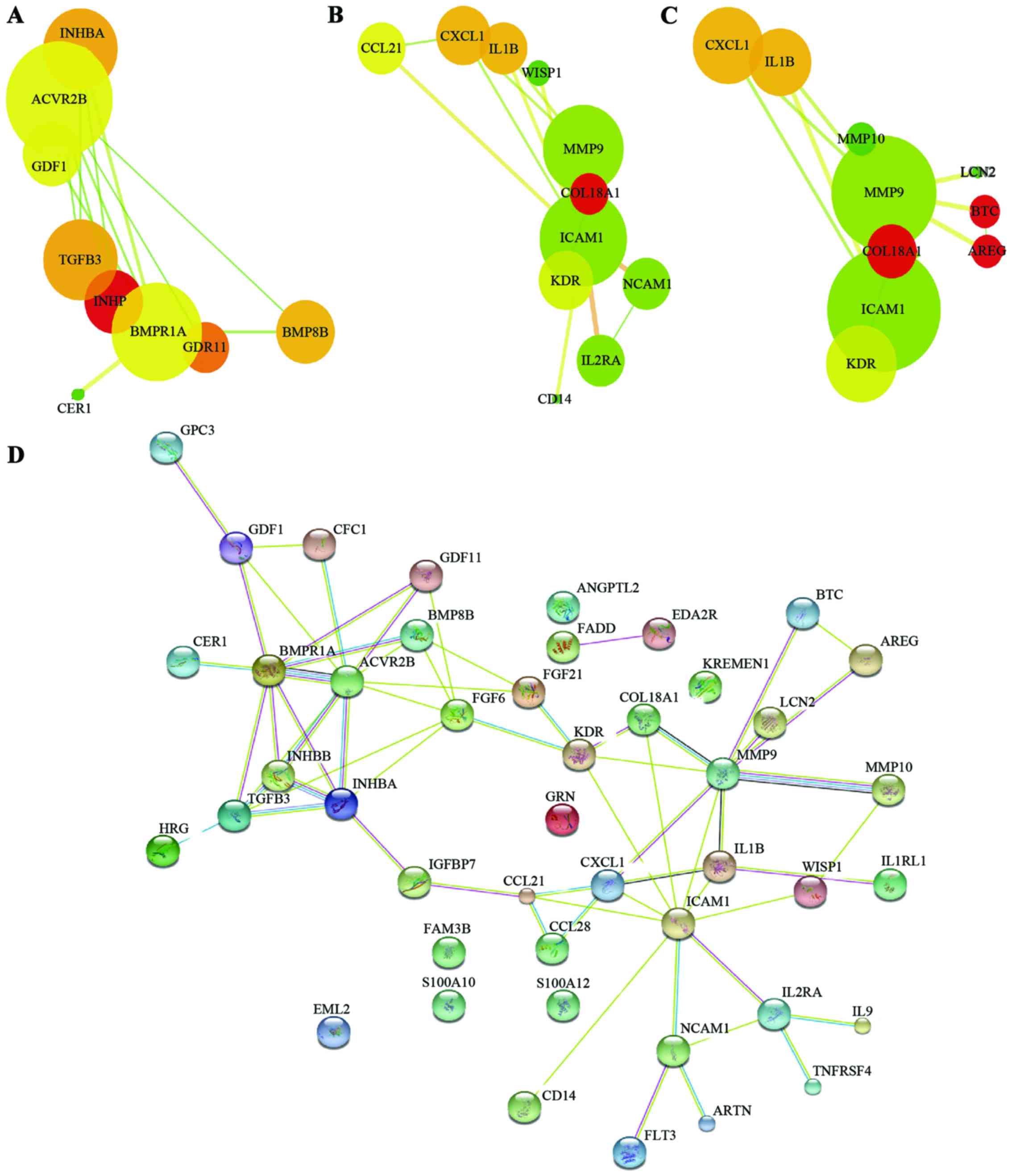|
1
|
Siegel R, Naishadham D and Jemal A: Cancer
statistics, 2013. CA Cancer J Clin. 63:11–30. 2013. View Article : Google Scholar : PubMed/NCBI
|
|
2
|
Li NM, Liu F, Lv FY and Zhang QW:
Influencing factors and interventional strategies for early enteral
nutrition after gastric carcinoma surgery. J Cancer Res Ther.
12:689–692. 2016. View Article : Google Scholar : PubMed/NCBI
|
|
3
|
Fu G, Niu Z, Zhou Y, Zhou X, Wang H and Su
Z: Influence of visceral fat area on laparoscopic radical
gastrectomy in patients with gastric carcinoma. Zhonghua Wei Chang
Wai Ke Za Zhi. 18:804–807. 2015.(In Chinese). PubMed/NCBI
|
|
4
|
Peddanna N, Holt S and Verma RS: Genetics
of gastric cancer. Anticancer Res. 15:2055–2064. 1995.PubMed/NCBI
|
|
5
|
Sakai N, Yoshidome H, Shida T, Kimura F,
Shimizu H, Ohtsuka M, Takeuchi D, Sakakibara M and Miyazaki M:
CXCR4/CXCL12 expression profile is associated with tumor
microenvironment and clinical outcome of liver metastases of
colorectal cancer. Clin Exp Metastasis. 29:101–110. 2012.
View Article : Google Scholar : PubMed/NCBI
|
|
6
|
Matboli M, El-Nakeep S, Hossam N, Habieb
A, Azazy AE, Ebrahim AE, Nagy Z and Abdel-Rahman O: Exploring the
role of molecular biomarkers as a potential weapon against gastric
cancer: A review of the literature. World J Gastroenterol.
22:5896–5908. 2016. View Article : Google Scholar : PubMed/NCBI
|
|
7
|
Amedei A, Prisco DD and Elios MM: The use
of cytokines and chemokines in the cancer immunotherapy. Recent Pat
Anticancer Drug Discov. 8:126–142. 2013. View Article : Google Scholar : PubMed/NCBI
|
|
8
|
Abdiche YN, Miles A, Eckman J, Foletti D,
Van Blarcom TJ, Yeung YA, Pons J and Rajpal A: High-throughput
epitope binning assays on label-free array-based biosensors can
yield exquisite epitope discrimination that facilitates the
selection of monoclonal antibodies with functional activity. PLoS
One. 9:e924512014. View Article : Google Scholar : PubMed/NCBI
|
|
9
|
Perlee LT, Christiansen J, Dondero R,
Grimwade B, Lejnine S, Mullenix M, Shao W, Sorette M, Tchernev VT,
Patel DD, et al: Development and standardization of multiplexed
antibody microarrays for use in quantitative proteomics. Proteome
Sci. 2:92004. View Article : Google Scholar : PubMed/NCBI
|
|
10
|
Kloppot P, Selle M, Kohler C, Stentzel S,
Fuchs S, Liebscher V, Müller E, Kale D, Ohlsen K, Bröker BM, et al:
Microarray-based identification of human antibodies against
Staphylococcus aureus antigens. Proteomics Clin Appl. 9:1003–1011.
2015. View Article : Google Scholar : PubMed/NCBI
|
|
11
|
Ebert MP and Röcken C: Molecular screening
of gastric cancer by proteome analysis. Eur J Gastroenterol
Hepatol. 18:847–853. 2006. View Article : Google Scholar : PubMed/NCBI
|
|
12
|
Erkan M, Reiser-Erkan C, Michalski CW,
Kong B, Esposito I, Friess H and Kleeff J: The impact of the
activated stroma on pancreatic ductal adenocarcinoma biology and
therapy resistance. Curr Mol Med. 12:288–303. 2012. View Article : Google Scholar : PubMed/NCBI
|
|
13
|
Puig-Costa M, Codina-Cazador A,
Cortés-Pastoret E, Oliveras-Ferraros C, Cufí S, Flaquer S,
Llopis-Puigmarti F, Pujol-Amado E, Corominas-Faja B, Cuyàs E, et
al: Discovery and validation of an INflammatory PROtein-driven
GAstric cancer Signature (INPROGAS) using antibody microarray-based
oncoproteomics. Oncotarget. 5:1942–1954. 2014. View Article : Google Scholar : PubMed/NCBI
|
|
14
|
Liu Y: Serum proteomic pattern analysis
for early cancer detection. Technol Cancer Res Treat. 5:61–66.
2006. View Article : Google Scholar : PubMed/NCBI
|
|
15
|
Ménard C, Johann D, Lowenthal M, Muanza T,
Sproull M, Ross S, Gulley J, Petricoin E, Coleman CN, Whiteley G,
et al: Discovering clinical biomarkers of ionizing radiation
exposure with serum proteomic analysis. Cancer Res. 66:1844–1850.
2006. View Article : Google Scholar : PubMed/NCBI
|
|
16
|
Caronni N, Savino B, Recordati C, Villa A,
Locati M and Bonecchi R: Cancer and chemokines. Methods Mol Biol.
1393:87–96. 2016. View Article : Google Scholar : PubMed/NCBI
|
|
17
|
Zhong J, Chen Y and Wang LJ: Emerging
molecular basis of hematogenous metastasis in gastric cancer. World
J Gastroenterol. 22:2434–2440. 2016. View Article : Google Scholar : PubMed/NCBI
|
|
18
|
Verbeke H, Geboes K, Van Damme J and
Struyf S: The role of CXC chemokines in the transition of chronic
inflammation to esophageal and gastric cancer. Biochim Biophys
Acta. 1825:117–129. 2012.PubMed/NCBI
|
|
19
|
Biswas SK and Mantovani A: Macrophage
plasticity and interaction with lymphocyte subsets: Cancer as a
paradigm. Nat Immunol. 11:889–896. 2010. View Article : Google Scholar : PubMed/NCBI
|
|
20
|
Mariani F and Roncucci L: Chemerin/chemR23
axis in inflammation onset and resolution. Inflamm Res. 64:85–95.
2015. View Article : Google Scholar : PubMed/NCBI
|
|
21
|
Hanahan D and Weinberg RA: Hallmarks of
cancer: The next generation. Cell. 144:646–674. 2011. View Article : Google Scholar : PubMed/NCBI
|
|
22
|
Galdiero MR, Garlanda C, Jaillon S, Marone
G and Mantovani A: Tumor associated macrophages and neutrophils in
tumor progression. J Cell Physiol. 228:1404–1412. 2013. View Article : Google Scholar : PubMed/NCBI
|
|
23
|
Jung M, Ören B, Mora J, Mertens C,
Dziumbla S, Popp R, Weigert A, Grossmann N, Fleming I and Brüne B:
Lipocalin 2 from macrophages stimulated by tumor cell-derived
sphingosine 1-phosphate promotes lymphangiogenesis and tumor
metastasis. Sci Signal. 9:ra642016. View Article : Google Scholar : PubMed/NCBI
|
|
24
|
Natesan M and Ulrich RG: Protein
microarrays and biomarkers of infectious disease. Int J Mol Sci.
11:5165–5183. 2010. View Article : Google Scholar : PubMed/NCBI
|


















